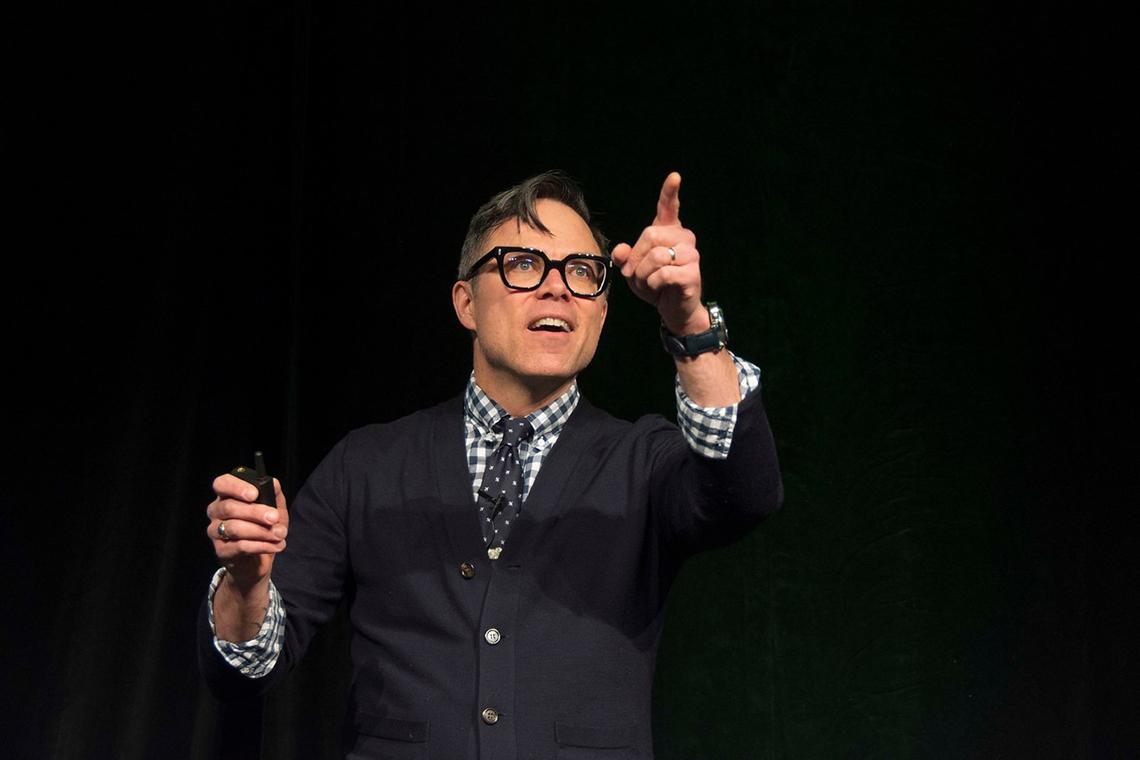Health Law Professor Advises
Scientists Must Speak Up Against Misinformation

“We’re in the middle of an ‘infodemic,’” warned Timothy Caulfield recently at an Office of Dietary Supplements seminar about current falsehoods surrounding Covid-19 and other misinformation circulating in the media.
Medical professionals and organizations must stand up for quality information, said Caulfield, Canada research chair in health law and policy, professor in the faculty of law and School of Public Health and research director of the Health Law Institute at the University of Alberta.
Over time, harmless-sounding terms like “immune-boosting” have normalized misinformation, he said. Such language is often associated with healthy behaviors, such as exercise, sleep and a balanced diet, creating a “health halo” effect. Those pushing immune-boosting misinformation use scientific jargon to give credibility to bunk, a practice Caulfield calls “scienceploitation.”
These positive associations make it easier to sell unproven products and, later on, get many people to believe other types of deceptive messages, such as anti-vaccine misinformation. Many people hawking bunk “immune-boosting” supplements and alternative medicines are also part of the anti-vaccine movement.
Conspiracy theories such as proclaiming Covid-19 results from 5G cellular technology or that the virus is a scam to force a vaccine containing a microchip on the world’s population get a lot of media attention. However, Caulfield pointed out, most Covid-19 online misinformation promotes “miracle cures” and other unproven treatments.
Those who get their news from social media platforms like Facebook, Instagram, Twitter or TikTok are more likely to believe misinformation, be misinformed and spread misinformation, he asserted.
In what’s called a “top-down, bottom-up phenomenon,” celebrities, politicians and influencers push misinformation and then the public amplifies it.
Additionally, fake documentaries and video clips found on streaming sites have millions of views. Compelling narratives and slick production values “can overwhelm our ability to think scientifically,” Caulfield explained. Unfortunately, even health science students find these documentaries persuasive.
The speaker said celebrities play an important role in how the public thinks about health. They can normalize healthy behavior or knowledge of diseases. For instance, Caulfield said, Tom Hanks’s announcement that he tested positive for Covid-19 increased some people’s understanding of the virus.
They can also negatively impact public discourse. Recently, actress Gwyneth Paltrow revealed she had long Covid. But she also used her announcement to advertise several unproven products that she claimed eased her symptoms. Caulfield said it was “infuriating” that she used the fear people have about long Covid as an opportunity to sell ineffective supplements.
The medical director of England’s National Health Service even spoke out against Paltrow’s treatment regimen, saying “some of the solutions she’s recommending are really not the solutions we recommend.”
Even though the NHS did not take any regulatory action against Paltrow, Caulfield said, they did use her comments as an opportunity to debunk misinformation and explain what the science really says. “I’d like to see more of that,” he noted.

To counter misinformation, Caulfield urged government agencies and individual medical professionals to speak up more often against misinformation.
His research has found that when experts debunk untrue messages, the public listens. Very rarely, if at all, is there a backfire effect—the idea that debunking falsehoods can further entrench belief in them—from speaking out against misinformation. Also, quickly correcting bad information prevents it from being politicized.
Recently, the official Twitter account of the Food and Drug Administration warned against the use of ivermectin to treat Covid-19. “You are not a horse,” the regulatory agency tweeted. “You are not a cow. Seriously, y’all. Stop it.” It linked to a post, “Why You Should Not Use Ivermectin to Treat or Prevent Covid-19.”
“Some people didn’t like this,” Caulfield said. “They thought that the FDA should not be putting tweets out like this. I think we need to in this era of misinformation. We need trusted voices like [NIH] to speak up in clear terms with shareable content that makes a very particular point about what the evidence actually says. I don’t think we have enough of this.”
To effectively debunk scientific misinformation, Caulfield advised researchers to:
-
Provide scientific evidence
-
Use clear and shareable content
-
Reference trustworthy and independent sources
-
Note scientific consensus and that science is a process that’s always evolving
-
Be nice, authentic and humble
-
Craft creative messages that incorporate narratives and humor
-
Highlight the rhetorical tricks, such as the use of anecdotal evidence or testimonials, that are used to push misinformation
-
Ensure science, facts and the truth are the most memorable parts of the message
-
Remember the general public—not hardcore deniers—is the target audience
“Debunking really does work,” Caulfield said.
In January, Caulfied helped launch a Canadian initiative called “ScienceUpFirst” that works with a collective of independent researchers, health care experts and research communicators to share the best available science in creative ways to stop the spread of misinformation. For details, visit: https://www.scienceupfirst.com/.
